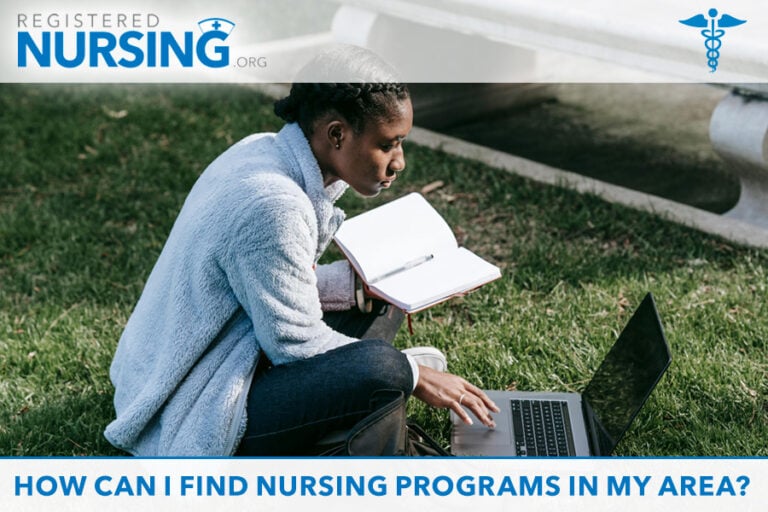Finding the right nursing program can feel overwhelming, especially when you’re trying to balance location, cost, and program quality. Whether you’re starting your nursing career or advancing your education, understanding your options and knowing what to look for will help you make an informed decision that aligns with your personal and professional goals.
Understanding Your Nursing Program Options
Whether you are searching for a specific program like an Associate’s Degree in Nursing (ADN), a Bachelor’s of Science in Nursing (BSN), or a Master’s of Science in Nursing (MSN), you’ll typically encounter three primary delivery formats. Each format offers distinct advantages depending on your circumstances and learning preferences.
Campus-Based Nursing Programs
Traditional campus-based programs provide the classic college experience with face-to-face instruction, immediate access to simulation labs, and direct interaction with faculty and peers. These programs are ideal for students who thrive in structured environments and prefer hands-on learning from day one. Campus programs typically offer extensive resources including state-of-the-art simulation centers, clinical partnerships with local healthcare facilities, and robust student support services.
The main advantage of campus-based programs is the immersive learning environment they provide. You’ll have regular access to instructors during office hours, can participate in study groups, and benefit from the networking opportunities that come with being part of a physical campus community. However, these programs require significant time commitments and may not accommodate working professionals or those with family obligations.
Online Nursing Programs
Online nursing programs have evolved significantly and now offer comprehensive education that rivals traditional formats. These programs are particularly appealing to working adults, parents, or those living in rural areas where campus options are limited. Modern online nursing programs incorporate virtual simulation software, interactive case studies, and video-based learning to create engaging educational experiences.
While online programs offer maximum flexibility in terms of scheduling and location, they still require clinical rotations that must be completed in person at healthcare facilities. Many online programs help students arrange clinical placements in their local areas, making it possible to earn a nursing degree without relocating or commuting long distances to campus.
Hybrid Nursing Programs
Hybrid programs combine the best of both worlds by offering some coursework online while maintaining essential in-person components. These programs might have weekend intensives, monthly campus visits, or specific lab days that require physical attendance. Hybrid formats work well for students who need some flexibility but also value face-to-face interaction and hands-on learning opportunities.
Essential Factors to Research When Choosing a Nursing Program
Accreditation Status
Accreditation is non-negotiable when selecting a nursing program. Look for programs accredited by either the Commission on Collegiate Nursing Education (CCNE) or the Accreditation Commission for Education in Nursing (ACEN). Accreditation ensures the program meets national standards and that your degree will be recognized by employers and licensing boards. Additionally, only graduates from accredited programs are eligible to take the NCLEX-RN examination required for nursing licensure.
NCLEX Pass Rates
Research each program’s NCLEX-RN pass rates, which are typically published on program websites or available through state nursing boards. Strong programs consistently maintain pass rates above the national average. Low pass rates may indicate issues with curriculum quality, student support, or preparation for professional practice.
Clinical Partnerships and Opportunities
Investigate the clinical partnerships each program maintains with local hospitals, clinics, and healthcare facilities. Strong clinical partnerships often translate to better learning experiences, potential job opportunities, and professional networking. Ask about the variety of clinical settings available, including specialty areas like pediatrics, mental health, and critical care.
Faculty Qualifications and Student Support
Examine faculty credentials, looking for instructors with both advanced degrees and current clinical experience. Consider the student-to-faculty ratio, availability of tutoring services, and academic support resources. Programs with dedicated student success coordinators or nursing success centers often provide additional support for challenging coursework.
Cost and Financial Aid Options
Compare total program costs including tuition, fees, books, uniforms, and equipment. Don’t forget to factor in opportunity costs if you’ll need to reduce work hours or relocate. Investigate financial aid options, including federal aid, state grants, employer tuition assistance, and nursing-specific scholarships. Many healthcare employers offer loan forgiveness or tuition reimbursement programs for new graduates.
Effective Strategies for Finding Local Nursing Programs
Community College Networks
Community colleges often offer excellent nursing programs with lower tuition costs and strong connections to local healthcare employers. Many community college nursing programs have partnerships with four-year universities, allowing for seamless transfer to Bachelor of Science in Nursing (BSN) programs.
Healthcare Employer Partnerships
Contact major healthcare employers in your area to learn about their preferred nursing schools and any educational partnerships they maintain. Many hospitals and health systems have relationships with specific nursing programs and may offer clinical rotations, job placement assistance, or tuition benefits for graduates.
Professional Networking
Connect with practicing nurses in your area through professional organizations, social media groups, or informational interviews. Current nurses can provide valuable insights about local program reputations, clinical experiences, and job market conditions.
Search for Nursing Programs In Your Area
Click on your state to find information on nursing degrees at all levels near you.
Each state may have different requirements for becoming a Registered Nurse. To find out specific requirements, click on your state.

- AL Alabama
- AK Alaska
- AZ Arizona
- AR Arkansas
- CA California
- CO Colorado
- CT Connecticut
- DE Delaware
- DC Washington, DC
- FL Florida
- GA Georgia
- HI Hawaii
- ID Idaho
- IL Illinois
- IN Indiana
- IA Iowa
- KS Kansas
- KY Kentucky
- LA Louisiana
- ME Maine
- MD Maryland
- MA Massachusetts
- MI Michigan
- MN Minnesota
- MS Mississippi
- MO Missouri
- MT Montana
- NE Nebraska
- NV Nevada
- NH New Hampshire
- NJ New Jersey
- NM New Mexico
- NY New York
- NC North Carolina
- ND North Dakota
- OH Ohio
- OK Oklahoma
- OR Oregon
- PA Pennsylvania
- RI Rhode Island
- SC South Carolina
- SD South Dakota
- TN Tennessee
- TX Texas
- UT Utah
- VT Vermont
- VA Virginia
- WA Washington
- WV West Virginia
- WI Wisconsin
- WY Wyoming
Making Your Final Decision
Once you’ve identified potential programs, schedule campus visits or virtual information sessions to get a feel for each program’s culture and approach. Speak with current students and recent graduates about their experiences, and don’t hesitate to ask admissions counselors detailed questions about curriculum, clinical placements, and support services.
Consider your long-term career goals when making your decision. If you plan to pursue advanced practice nursing or leadership roles, ensure your chosen program will provide a strong foundation for future education. Some programs offer direct pathways to graduate degrees or specialized certifications that could benefit your career trajectory.
Remember that finding the right nursing program is about more than just location or cost. The program you choose will shape your professional knowledge, skills, and network, influencing your entire nursing career. Take time to thoroughly research your options and select a program that aligns with your learning style, career goals, and personal circumstances.
Latest Articles & Guides
One of the keys to success as a registered nurse is embracing lifelong learning. Our articles and guides address hot topics and current events in nursing, from education to career mobility and beyond. No matter where you are on your nursing journey, there’s an article to help you build your knowledge base.
Browse our latest articles, curated specifically for modern nurses.




